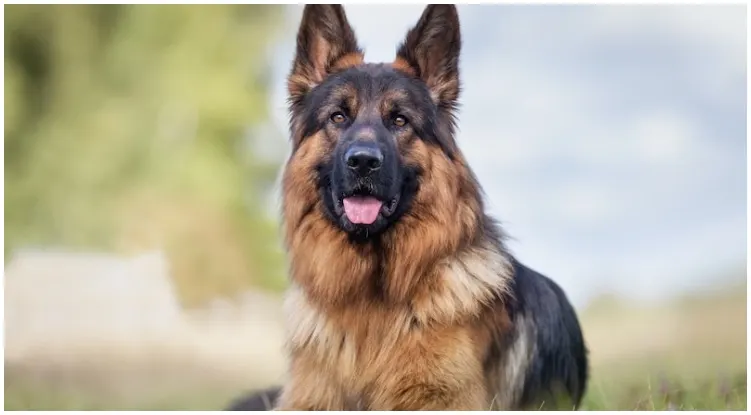The good news first: The German Shepherd is a pretty low maintenance dog. He does not need time-consuming cleaning rituals or visits to the dog salon. But do German Shepherds shed? Scroll down to find out everything you have to know about caring for a Shepherds’ fur.
Caring for a German Shepherd
The German Shepherd was originally bred as a herding dog and even crossed with real wolves in the early days of breeding.
Accordingly, his fur is robust and weatherproof. Nevertheless, of course, a German shepherd also needs regular attention and a certain amount of care.
The fur alone is not enough. If you take care of your dog properly and regularly and also pay attention to a few things, you make a great contribution to his well-being and state of health.
Observe the dog daily and carefully and you will quickly notice for yourself how much care is needed for the benefit of your dog and when you take care of it.
How care-intensive your German Shepherd is depends above all on how short you keep his fur and whether the dog is in the apartment or outdoors.
Do German Shepherds Shed?
Let’s now clean up the air and answer the question: Do German Shepherds shed? The shepherd dogs, like their relatives, have a very robust and natural coat that does not require intensive care.
Since the hair of the German Shepherd does not to fall out by itself, but is stripped off by touch, regular brushing 1-2 times a week is essential.
However, you may notice some hair on your furniture during their seasonal shedding.
A brush and a comb are usually sufficient for grooming. Some owners also like to trim the fur of their animals or use care products. But this is usually not necessary at all.
When caring for grooming, you should also pay attention to skin changes (fungal infestation, dandruff), parasites (ticks, fleas, mites) and possible injuries. Tick tongs and flea combs are also part of good grooming.
Important: A healthy and balanced diet is a huge factor for a healthy and shiny coat. It also often prevents allergies and skin problems.
How often should the dog bathe?
Ideally not often at all! Bathing and shampooing only destroy the natural protective and fat layer of coat and skin and can also lead to itching and skin irritation.
Bathe your German Shepherd only in an extreme emergency, for example if he has rolled in excrement or an animal carcass or if it is medically necessary.
Use only special dog shampoos to soap or a very mild baby shampoo in an emergency.
If the dog has only froze in the mud and is dirty, you can often do without a shampoo and shower it only with warm water.
How best to proceed:
Preparation:
- Place non-slip rubber pad in the shower or bathtub.
- Provide mild shampoo.
- Set and check temperature (warm, but by no means hot!).
Bathing:
- Carefully shower the dog.
- Start with your paws and slowly work your way up.
- Next are the rod, sides and back.
- Be careful with the head, use a wet washcloth instead of the shower to gently clean the head.
- Gently massage the dog with a special shampoo (save the head region if possible and make sure that no shampoo gets into the eyes, ears or nose).
- Rinse thoroughly. Start with the head and work your way to the rod.
Drying:
- When you have finished the procedure, the shepherd dog will often shake the excess water off
- Then dry it in the bathtub or shower as much as possible, but do not rub too hard.
- Some dogs like to be blown dry with the hair dryer.
- Make sure that your dog is warm
Grooming Checklist for German Shepherds
- Bathing: Only in exceptional cases or in case of medical necessity. Use mild shampoo.
- Fur: Weekly brushing of the coat, while checking for skin and coat changes, parasites and injuries.
- Eyes: Check daily and clean if necessary. Use soft and moist wipes (one for every eye).
- Teeth and mouth: Check daily and free from food residues. Use toothpaste and brush and/or offer chewing articles.
- Ears: Check daily and clean if necessary. Do not use ear sticks, but soft and damp cloths. Clean only the ear funnel.
- Paws: Check daily for injuries and the like. If necessary, apply cream bales or shower off if dirty. In winter, regularly clean of snow, rinse salt residues and rub bales with fat or wound cream. If necessary, you can use dog shoes.
- Claws: If they touch the ground, you should carefully shorten the claws with special claw pliers. In case of uncertainty, have the veterinarian shorten.

